I have a simple EF Linq query that used to work. Now it is returning null every time and I can't track down why.
public Sample GetDataSample(Equipment equip)
{
Sample sample = null;
try
{
sample = this.Samples.FirstOrDefault(s => s.EquipmentId == equip.Id);
}
catch (Exception e)
{
// do nothing for now
}
return sample;
}
This is called from within an active DbContext with a valid Equipment entity. Here is what I am seeing in the debugger. I have verified that the DbSet Samples in the active context does contain data that should match. Please tell me I am missing something obvious.
EDIT: I did a LINQ profile to see what the SQL generated was and it looks fine:
SELECT TOP (1)
[Extent1].[Id] AS [Id],
[Extent1].[EquipmentId] AS [EquipmentId],
[Extent1].[SampleTime] AS [SampleTime]
FROM [Pbhs].[Samples] AS [Extent1]
WHERE [Extent1].[EquipmentId] = 1
Now, I am wondering if the EF lookup is checking the local proxy or if it is looking in the database. The data exists in the current context but has not been committed to the database yet.

